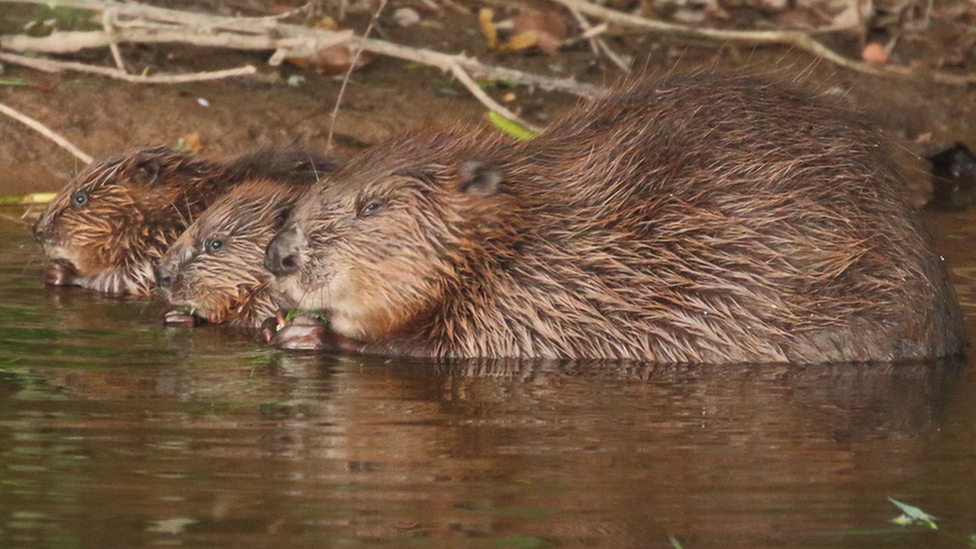Beavers could return to Wales within weeks
- Published
Beavers: Friends or foes of Welsh countryside?
Wales' first officially-licenced beavers could arrive from Scotland within weeks.
The mammals were hunted to extinction across Britain in the 16th Century for their fur, meat and scent glands.
However the Welsh Beaver Project is hopeful it will be granted a licence to keep as many as six in an enclosure.
The animals would be housed at Cors Dyfi Nature Reserve, near Machynlleth, Powys, where they would be used to clear willow trees.
It is hoped the semi-aquatic mammal could restore the three-hectare wetland habitat, boosting other species.
Alicia Leow-Dyke, of the Welsh Beaver Project, said: "Beavers coppice trees, they feed on the willow bark and barks of other trees.
"They will fell the trees to get the bark and eat the leaves. That will allow the area to open up and make it easier for people to manage in the future."
That should allow marshland vegetation to emerge - such as bog myrtle, rushes and reeds - which are low growing plants that like wetter areas.
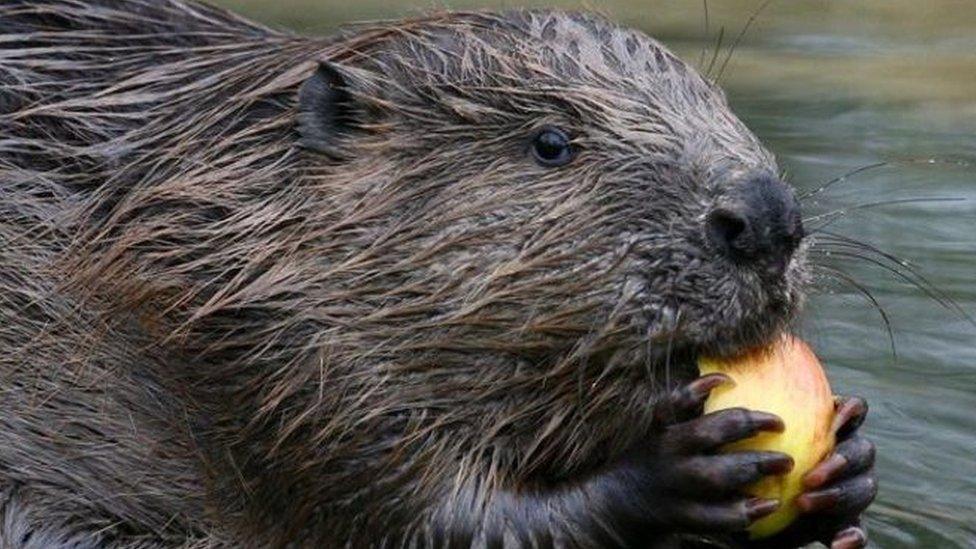
The beavers will be microchipped and tagged on their ears.
The area has been difficult for people to clear because of the remains of conifer woodland that once grew there.
"The hope is that they will breed and form a small family group and manage the whole habitat over five years," Ms Leow-Dyke said.
"If they manage it enough, we can look to extend the enclosure."
The beavers could arrive anytime between March and May if the project, led by Montgomeryshire Wildlife Trust, is approved by Natural Resources Wales.
BBC Springwatch presenter and naturalist, Iolo Williams, said it would be "fantastic" to have them back, adding: "What you will find is that area, the bio-diversity will go through the roof.
"It will be brilliant for amphibians, aquatic plants, invertebrates and fish."
He said their dams would retain silt, leaving cleaner water for spawning salmon.
"People don't see the bigger picture of what's happening when you bring beavers back to an area where they have been absent for a number of years," he said.

The Welsh Beaver Project's Alicia Leow-Dyke said as many as six beavers could be placed in the enclosure
Beavers were reintroduced to Scotland in 2009 and now enjoy protected status there.
Two were also released into a Yorkshire forest last year to help stop flooding.
A pair were introduced into an enclosure at Blaeneinion, a conservation project near Machynlleth, in 2008 - before licences were required - where their engineering has been credited with helping flood management.
However fisheries expert Professor Ian Cowx, of University of Hull, in a report commissioned by the Angling Trust, said beavers could disrupt fish migration, cause shifts in fish species composition, damage river banks and reduce agricultural production.
Mark Owen, of the Angling Trust, said: "We are very concerned about any impact on salmon, their habitats and their ability to reach spawning grounds, particularly as salmon are getting to be an endangered species.
"There needs to be careful consideration that we don't release one species that has the potential to impact on another that is so threatened."
The National Farmers' Union has raised concerns of the potential for flooding and farmers being powerless to act if beavers were to be granted protected status and escaped.
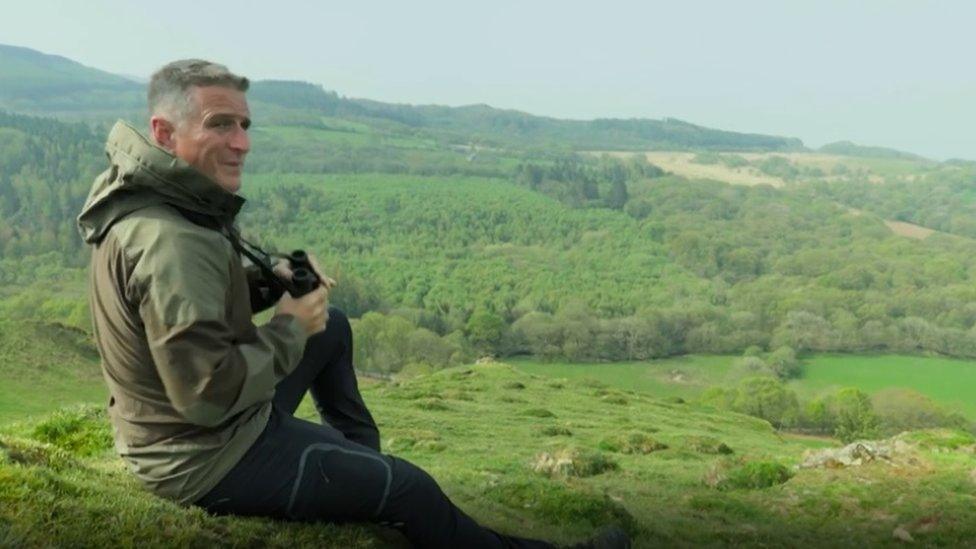
There is some opposition to the plan but television's Iolo Williams gave it a "thumbs up"
Gareth Wyn Jones farms along the River Dyfi near Llanwrin, about two miles from Machynlleth.
He questioned whether the beavers might damage the "fragile" ecological balance.
"It would be important to watch their development over time so people have an idea of the environmental impact," he said.
"One thing can make a big difference. We have a duty of care for the environment and the animal."
Natural Resources Wales said it was still finalising its response to the application from Montgomeryshire Wildlife Trust.
There is a separate application from North Wales Wildlife Trust to release 10 pairs into the River Dyfi as part of a five-year pilot study.
NRW said it was awaiting further information for that application before launching a public consultation.

BARE KNUCKLE BOXING: Sean George prepares for the fight of his life
THE HINDU BARD: Dorothy Bonarjee caused a sensation when she won a top Welsh cultural prize

- Published30 November 2020
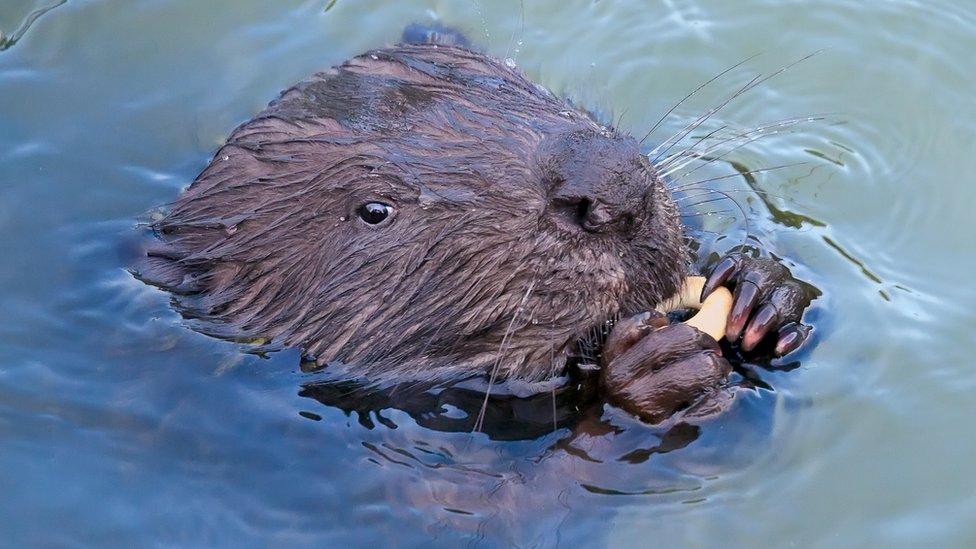
- Published15 January 2020
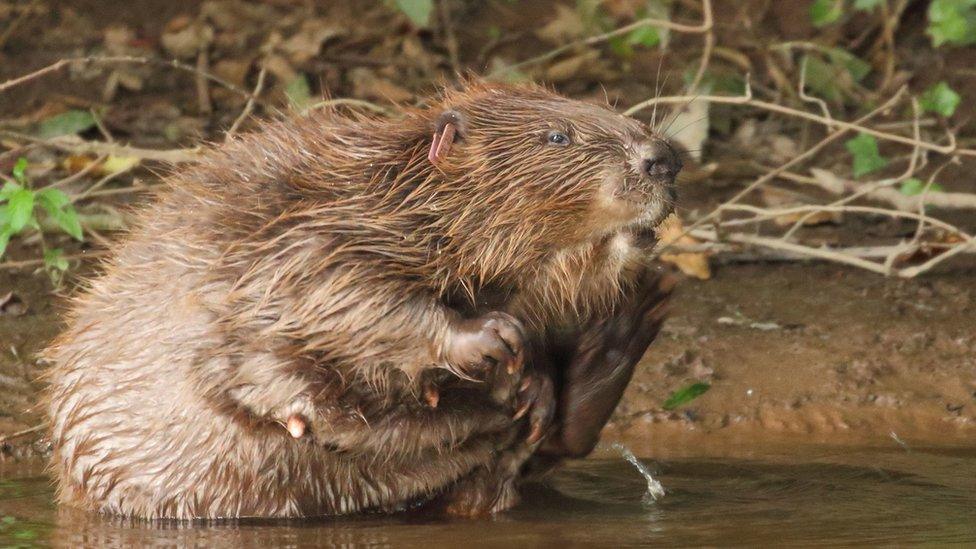
- Published6 August 2020
